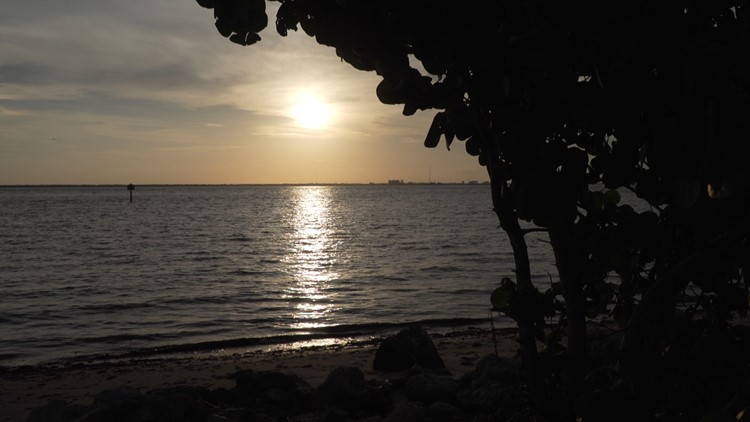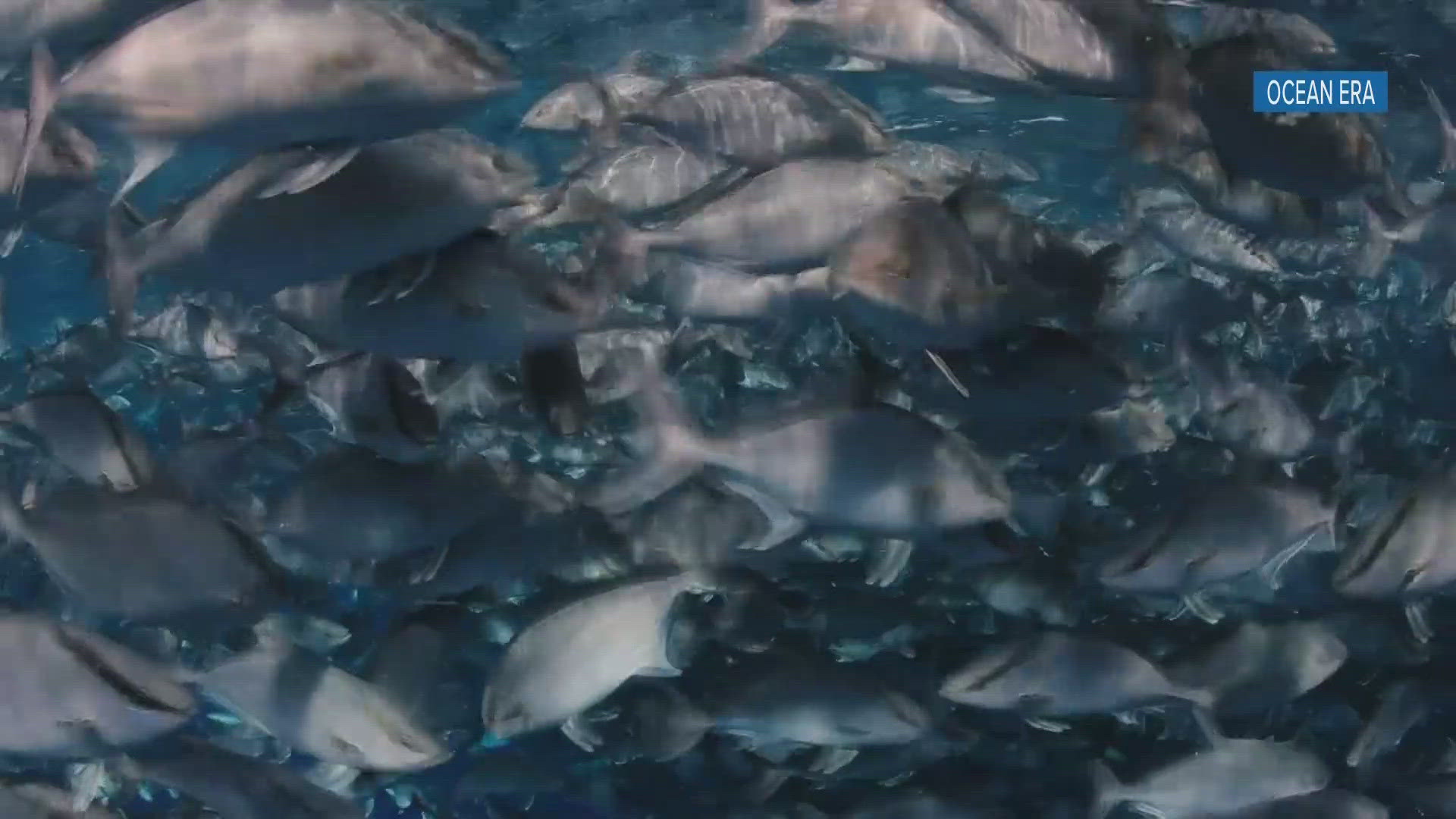ST. PETERSBURG, Fla. — The Florida Department of Environmental Protection (DEP) signed a Memorandum of Understanding (MOU) with the National Institute of South Korea to strengthen collaboration on harmful algal bloom management internationally, led by Gov. Ron DeSantis.
The MOU aims to establish an international framework for mutual learning and collaboration for harmful algal bloom reduction, which includes risk assessment, reducing nutrient loading in bodies of water and new treatment technologies, according to a news release.
The document also includes exchanging scientific and technical information by transmitting data, publications, reports and presentations.
Harmful algal blooms are most commonly noticed during red tide when the Gulf coast of Florida experiences an overgrowth of algae colonies during the summer into fall that kills fish, makes shellfish dangerous to eat and turns the water red.
The environment is not the only factor impacted by the algal blooms, however. The economy is also at risk.
A group of Florida nonprofits, Captains for Clean Water, the Conservancy of Southwest Florida and the Sanibel Captiva Conservation Foundation, teamed with environmental economics analysts Greene Economics to study the effects of water quality on Southwest Florida, where red tide hits the hardest.
This study found that if blooms like those in Collier, Charlotte and Lee in 2005, 2006 and 2018 appear, the area studied could lose at least $460 million in recreational and commercial fishing, $17.8 billion in property values and 43,000 jobs.
Florida and South Korea have committed to developing strategies to prevent, cleanup and mitigate these blooms with the MOU in place.
“Expanding Florida’s capabilities to respond to harmful algal blooms helps us protect our economy and keep our natural resources healthy," DeSantis said in a statement. “Florida and South Korea have a strong economic partnership, particularly in the technology sector, and through this MOU, both partners will further ongoing research to combat harmful algal blooms like blue-green algae.”
The MOU follows an international trade mission led by DeSantis in April 2023 to meet with economic partners, including Japan, South Korea, Israel and the United Kingdom to build and expand international relationships. DeSantis also signed an MOU with the United Kingdom to grow business and academic partnerships.
“Through this partnership, we're not just sharing knowledge; we're forging a path to resilience against environmental challenges," Hanseung Kum, President of the National Institute of Environmental Research in South Korea, said in a statement. “The collaboration between South Korea and Florida highlights our deep commitment to deploying science and innovation in the battle against harmful algal blooms, ensuring healthier ecosystems for our communities.”
DeSantis also created the Blue-Green Algae Task Force when first taking office in January 2019 to address harmful algal blooms recurring across Florida, as well as investing $65 million to innovative technologies to mitigate the effects of the blooms.



